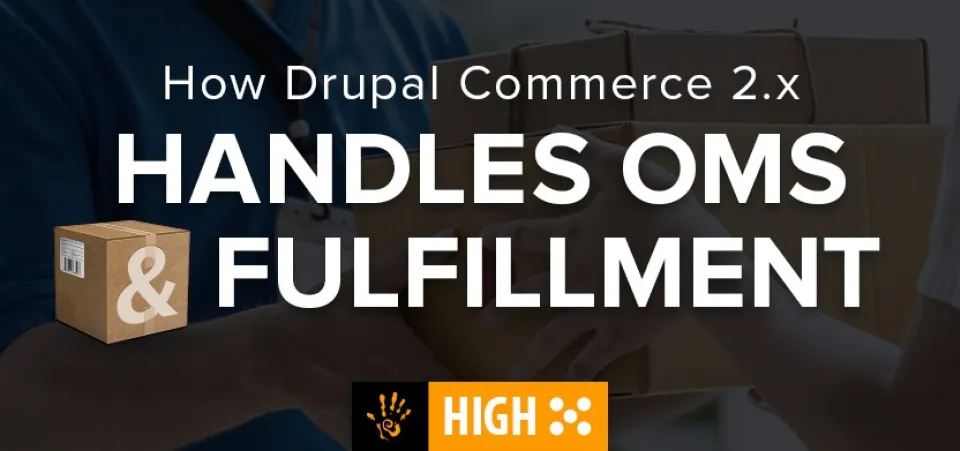
Posted in Digital Commerce, Drupal
July 26, 2017
How Drupal Commerce 2.x handles OMS & fulfillment
If a customer comes to your Drupal Commerce site and goes to the trouble of going through the checkout process and entering their payment information, you really need to make sure that whatever they ordered actually arrives on their doorstep. That’s what OMS and fulfillment are all about.
What exactly are OMS and fulfillment?
OMS stands for Order Management System. Order management and fulfillment are two sides of the same coin, but there are some key distinctions.
Order management means managing the order as a customer service person—checking that the order is valid, filling it out, answering any customer questions, etc. Fulfillment is the actual act of getting the product to the customer—taking it off the shelf, putting it into a box, and getting it shipped out (or in the case of a digital good, making sure the product actually made it to the customer).
So order management and fulfillment are closely related, but you might use different systems or even different people for each aspect.
How does Drupal handle order management and fulfillment?
Drupal has full order management capabilities out of the box. You can edit orders, change orders, add products, put notes in, change taxes, etc.
Fulfillment is where Drupal is a bit weak. This is a key area for integration with a third party. Maybe you don’t even do your own fulfillment—maybe you process the orders and send them to Amazon, which actually handles shipping them out. Maybe you ship from 20 different locations and have to move products around, so you need a system that can handle such complexities. Commerce 2.x has the basic framework for fulfillment, but it’s early days, and more work needs to be done. But you can integrate with other systems that can take care of that function.
Are any fulfillment systems easier to work with than others?
Fulfillment integration is not usually too complex; normally you’re just pushing the order information to the other system. That said, you’ll want a modern system that has an API that can be worked with (Amazon and Brightpearl are just two examples). Fulfillment has existed since the early days of print catalogue ordering and some of the software seems like it’s from that same era—it might be difficult or even impossible to integrate with some older systems.
The bottom line
Drupal Commerce has good order management out of the box. It has OK fulfillment out of the box, but it can integrate with anything you want (except some crappy legacy systems from the 1970's).
To learn more, check out our High Five episode Drupal Commerce 2.x – OMS & Fulfillment.

